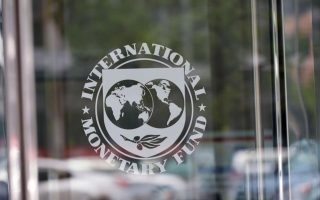Government bracing for a crucial week

As a crucial board meeting of the International Monetary Fund took place Monday night over its participation in Greece’s current rescue program, the government was bracing for a crucial week in its bid to conclude the second review of the country’s third bailout.
Despite new fears that the impasse in negotiations could send Greece, again, to the brink of a euro exit, Prime Minister Alexis Tsipras insisted on Monday that the “uncertainty will end” soon, after a meeting with top government and SYRIZA officials.
With pressure growing at an almost exponential pace on Athens to wrap up the review, government sources insisted on Monday that the leftist-led coalition would not make any “concessions on matters of principle.”
But given that Greece is racing against time to wrap up the review, analysts said this sounded like a shift from the government’s narrative, which until last week insisted that no new measures would be legislated.
What was clear on Monday, according to the PM’s aides, was that negotiations between all parties involved in the Greek bailout have picked up in earnest again after last month’s Eurogroup.
“We are talking to everyone, we are submitting our proposals and we’re listening to theirs,” a government source said.
Whether this intensification of talks will yield the desired results, which would lead to a conclusion of the review, remains to be seen at Thursday’s Euro Working Group.
As part of these efforts to break the deadlock, Eurozone chief Jeroen Dijsselbloem has reportedly seized the initiative to get all parties involved around the same table on Friday.
The stakes couldn’t be higher as failure to conclude the review by the Eurogroup on February 20 could deprive Greece of much needed rescue funds, jeopardize the bailout and push the country to the edge of the precipice again.
Meanwhile, Berlin warned earlier Monday, through a spokesman for German Finance Minister Wolfgang Schaeuble, that if the International Monetary Fund were to pull out of the bailout, that would spell the end of the current program.
The Washington-based organization has been at loggerheads with Greece’s international creditors over the sustainability of the country’s debt and the measures Athens must take to meet its fiscal targets.
Germany, which is Europe’s largest economy, has insisted that the IMF must remain in the program but disagrees with the demand by the Fund for substantial debt relief to Greece, unless it legislates tough reforms and achieves budget surpluses of 3.5 percent after the bailout ends in 2018.





